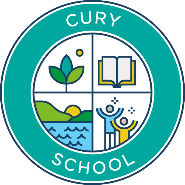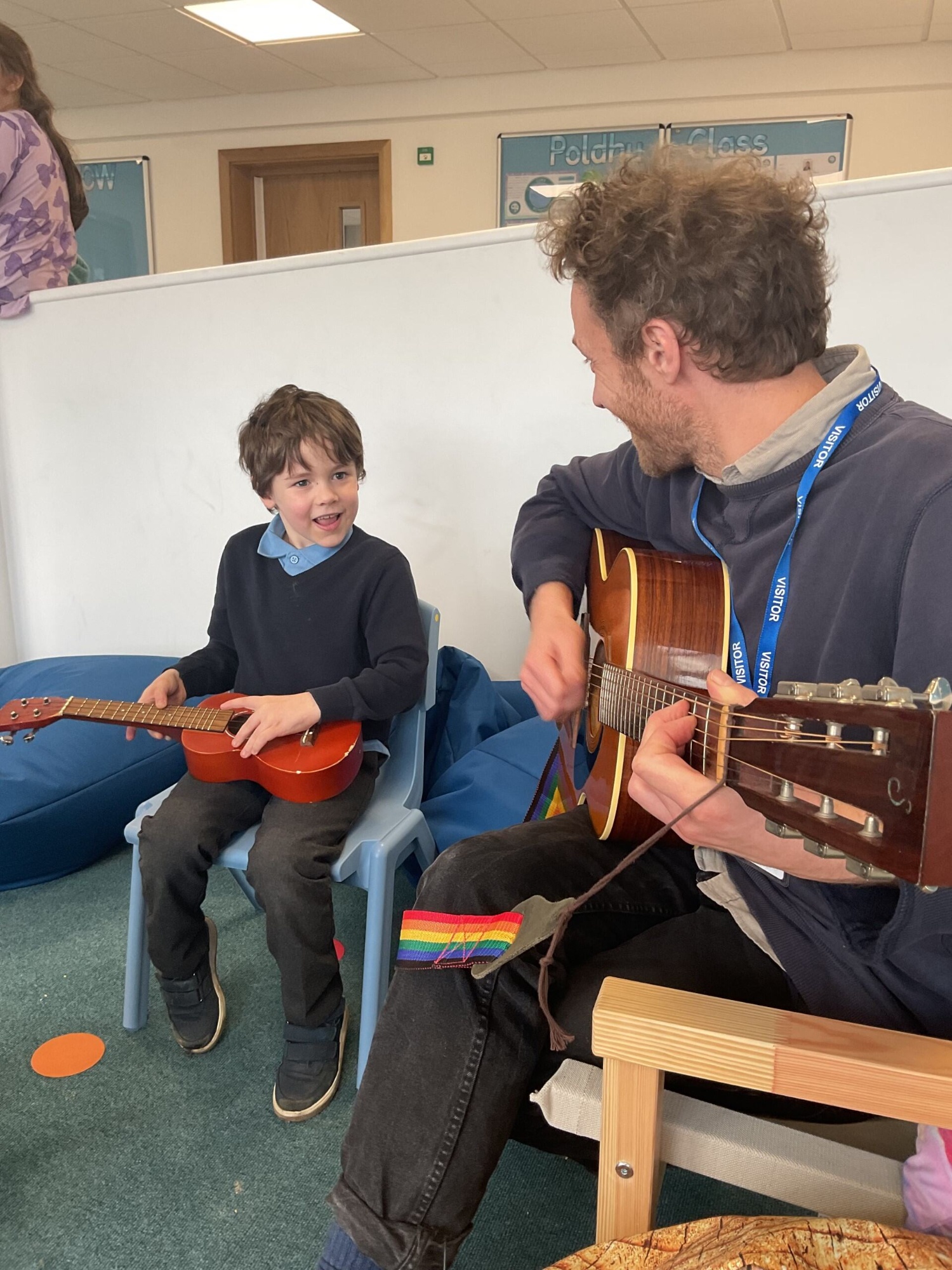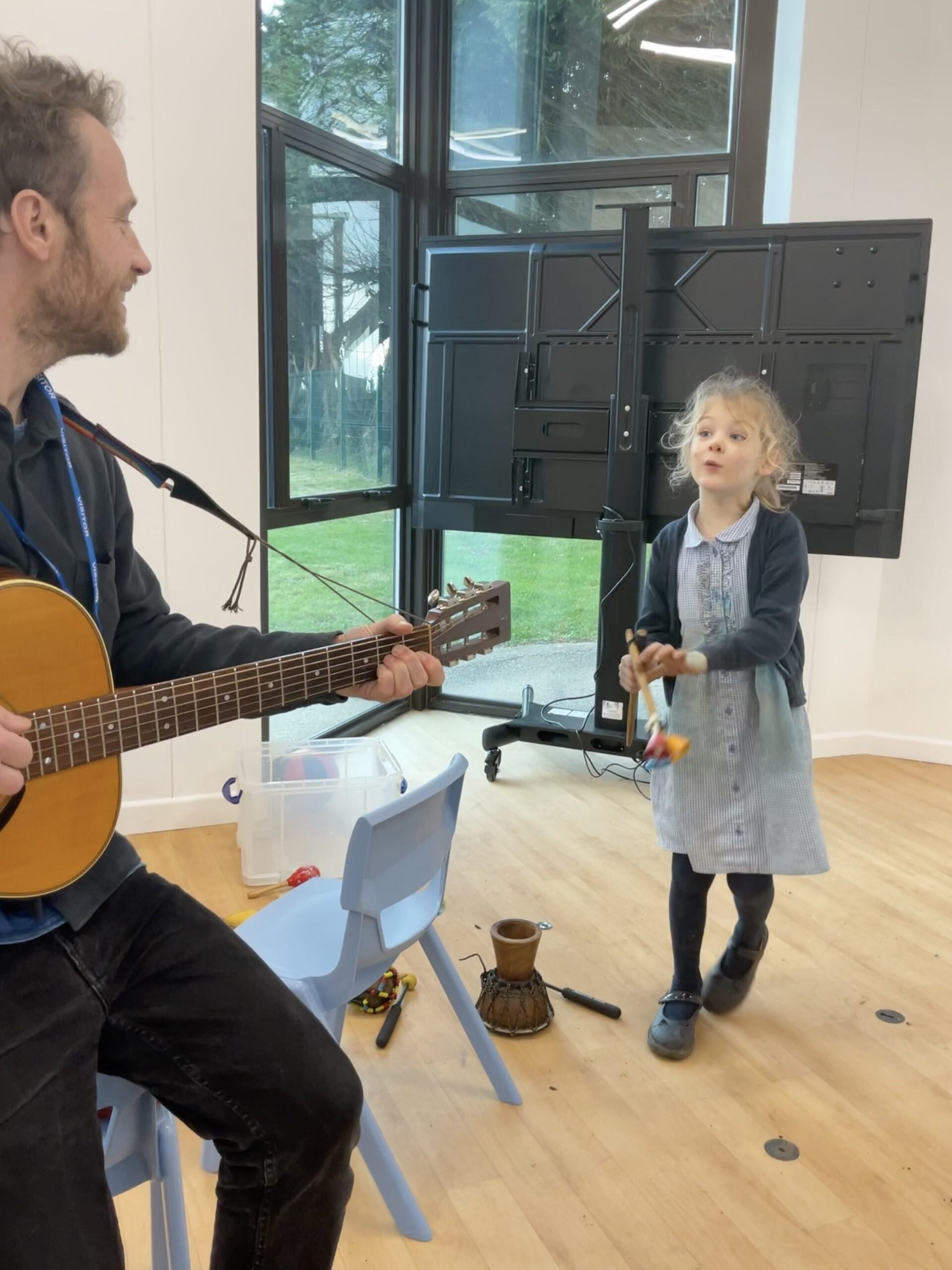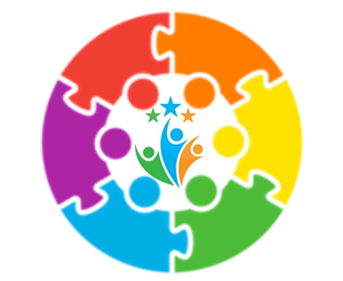Music
![]()

At Cury, we feel music is a powerful tool that can be used to support emotional expression, social development and personal growth for our pupils. Music offers an accessible and inclusive medium through which our learners can express themselves, particularly when words may be difficult. By engaging pupils in a variety of musical activities, we aim to foster emotional regulation, boost self-esteem, and build social skills. Through collaborative music-making, such as singing and group performances, pupils will develop teamwork, communication, and empathy. The structure and routine provided by regular music lessons will create a predictable environment that supports emotional security and reduces anxiety. Moreover, we seek to nurture a lasting love of music by introducing pupils to diverse genres and instruments, allowing them to explore their interests and talents. Music will also be integrated into the broader curriculum, contributing to pupils’ cognitive development, concentration, memory, and problem-solving abilities, ultimately supporting their overall academic and personal growth. Children will develop the musical skills of singing, playing instruments, improvising and composing music, and listening and responding to music. They will develop an understanding of the history and cultural context of the music that they listen to and learn how music can be written down. Through music, our curriculum helps children develop transferable skills such as team-working, leadership, creative thinking, problem-solving, decision-making, and presentation and performance skills. These skills are vital to children’s development as learners and have a wider application in their general lives outside and beyond school. Overall, we want our pupils to feel that they are creative and musical, and to develop a life-long live of music.
![]()
Our curriculum introduces children to music from all around the world and across generations, teaching children to respect and appreciate the music of all traditions and communities. We focus on developing the skills, knowledge and understanding that children need in order to become confident performers, composers, and listeners. Music at Cury is part of our cross-curricular offer as pupils have opportunities to listen to and engage with music every day through a range of experiences. Each music unit that is taught combines with another subject being taught to allow for cross-curricular links to be made and to ignite imagination and curiosity about different topics and cultures.
Our music scheme aligns with the National curriculum however learning is adapted to meet the needs of each individual learner including the use of visual aids, picture-based song lyrics and written music, and AAC devices. Our music curriculum consists of four strands that are woven together to create engaging learning experiences. They are:
-
Listening and evaluating
-
Creating sound
-
Notation
-
Improvision and composing
Our curriculum is designed with a clear progression of skills where previous skills and knowledge are returned to and built upon through the key stages. Pupils will learn to recognise, demonstrate and name the interrelated dimensions of music and use them expressively in their own improvisations and compositions. These are:
-
Pitch
-
Tempo
-
Duration
-
Timbre
-
Structure
-
Texture
-
Dynamics
Music lessons are designed to be flexible, accessible and individually tailored to ensure that every pupil can engage thoroughly and experience success. Each lesson includes warm-up activities, introductions to new concepts and language, guided practice, experimentation and exploration, and time for reflection. Additionally, lessons are hands-on and incorporate movement and dance elements. The learning environment is safe, nurturing and relaxed, allowing pupils to experiment with sounds, rhythms and instruments without fear of judgement or failure.
Music therapy is part of our therapeutic enrichment as trained professionals deliver engaging sessions to support pupils’ social, emotional and mental health needs outlined in their EHCP. The impact of these sessions is reviewed regularly and adapted to ensure sessions are effective and appropriate. Our pupils also have opportunities to rehearse, sing and sign with our Makaton choir and experience performing in front of an audience, whether that is their friends, family or within the local community.
![]()
At Cury, we measure the impact of our music curriculum in both emotional and academic terms. Through teaching lessons with a clear, consistent structure, pupils feel secure and confident in their ability to engage with reduced anxiety about the learning that is taking place. Through the implementation of our music curriculum, our pupils should leave Cury equipped with a range of skills to enable them to success in Key Stage 3 and to be able to enjoy and appreciate music throughout their lives. Our learners are confident performers, composers and listeners, and can express themselves through music both in and outside of school. Pupils foster an appreciation and respect for a wide range of musical styles from around the world.
Improved Emotional Regulation
Through regular exposure to music, pupils develop greater emotional awareness and regulation. Music becomes a tool for self-soothing, and as pupils begin to recognise the emotional cues within different musical pieces, they are better equipped to understand and manage their emotions in other areas of life. Pupils also learn to explore their creativity and develop their communication skills using music as a tool for self-expression. The emotional and social skills developed through music will extend beyond the classroom. Pupils will develop lifelong skills in empathy, resilience, and emotional intelligence that will benefit them as they progress into adulthood. The calming and structured nature of music lessons contributes to improvements in behaviour, and support pupils to manage frustration, anxiety, or stress. Music can also provide a channel for pupils to release built-up emotions in a constructive way.
Increased Self-Esteem and Confidence
By celebrating musical achievements, whether big or small, pupils will experience an increase in self-worth. The validation of their creative abilities in a supportive environment fosters a sense of pride and accomplishment. Opportunities to perform within the local community help pupils to feel a sense of belonging and confidence in the community, and pride in performing and showcasing their success.
Stronger Social Connections
Group music-making has been shown to improve communication and collaborative skills. Pupils develop stronger relationships with peers through ensemble work, group discussions, and performances. As they work together to achieve a common goal, pupils learn the importance of teamwork, patience, and respect. Our choir gives our pupils the opportunity to be part of a social group with common interests and goals.
Cognitive Development and Increased Engagement
Through engaging with music, pupils develop skills such as concentration, memory, pattern recognition, and problem-solving. These skills support broader academic development and can help with transitions to other learning areas and support concentration and attention. Additionally, as music is a more sensory and emotionally engaging subject, it serves as a bridge to help pupils access learning and feel more involved in school life.









